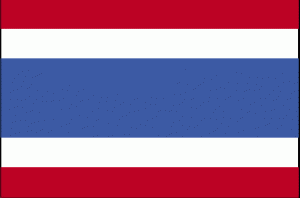 The Bangkok Post reports that Thailand has agreed to enter the Trans Pacific Partnership Agreement negotiations, a development that will be formally announced on Sunday during a U.S. Presidential visit by Obama on Sunday. Thailand has existing FTAs with Australia and New Zealand, and it previously engaged in FTA negotiations with the U.S. (2004-2006), which fell apart after Prime Minister Thaskin was ousted by a military coup. Since then, the U.S. and Thailand have clashed over compulsory licenses for essential medicines.
The Bangkok Post reports that Thailand has agreed to enter the Trans Pacific Partnership Agreement negotiations, a development that will be formally announced on Sunday during a U.S. Presidential visit by Obama on Sunday. Thailand has existing FTAs with Australia and New Zealand, and it previously engaged in FTA negotiations with the U.S. (2004-2006), which fell apart after Prime Minister Thaskin was ousted by a military coup. Since then, the U.S. and Thailand have clashed over compulsory licenses for essential medicines.
USTR is required by law to formally notify Congress of its intention to enter trade negotiations with Thailand as a new FTA partner, which will trigger a 90 period during which it will seek input from Congress and others. A similar process was recently completed for the entry of Canada and Mexico. The process included an opportunity for interested parties to submit written comments to USTR and to testify at an open public hearing.
Previous FTA Negotiations
The US-Thai FTA negotiations alarmed advocates for greater access to medicines, who warned that the TRIPS-Plus provisions in the FTA would interfere with access to medicines. Oxfam warned in a briefing paper (available in English, Thai, Spanish, French, Indonesian, French, and Khmer) that “New stringent drug patent and marketing rules being negotiated in a Free Trade Agreement FTA between the US and Thailand would limit competition and reduce access to affordable medicines in Thailand. This would threaten the future of existing successful Thai HIV/AIDS treatment programmes, which rely on inexpensive generic drugs, and thus deprive thousands of people of effective treatment.” Brook Baker from Health GAP warned that the text included TRIPS-Plus provisions including the requirements for second-uses patnets, patent extensions, data exclusivity, linkage, and a ban on pregrant opposition – all of these are in the leaked texts of the TPP. (The US-Thai FTA also included restrictions on compulsory licenses., which are not found int he leaked TPP texts.) James Love wrote in the Huffington Post that the FTA provisions were “aimed at blocking generic competition and reducing the effectiveness of government negotiations over drug prices.” Love’s article also includes photos of demonstrations in Chiang Mai against the FTA.
In response then-U.S. Trade Representative Wendy Cutler attacked the critics, saying at a press conference that: “the claims by some groups that the FTA will cause drug prices to rise by whole multiples of their current price is based on a lack of understanding of the U.S. proposal, runs counter to the experiences of our other FTA partners, and amounts to scaremongering.”
Compulsory License Disputes
In late 2006, after the FTA negotiations had fallen apart, the Ministry of Health began granting compulsory licenses for needed medicine. Between November 2006 and January 2007, it granted licenses for patents on two antiretroviral drugs (efavirenz and lopinavir+ritonavir) and clopidogrel, a heart medication sold by Bristol Myers Squibb. The licenses were issued for government use, after years of prior negotiation with the patent holders, and include a 0.5% royalty rate. USTR responded by putting Thailand on the 301 Priority Watch List, citing “further indications of a weakening of respect for patents, as the Thai Government announced decisions to issue compulsory licenses for several patented pharmaceutical products.” Thailand has remained in the Special 301 Report ever since, and it was subject to an “out of cycle review.”
(The Special 301 Report is the U.S. government’s annual report accusing countries of denying “adequate and effective” IPR protection. It routinely includes countries that adhere to global IPR norm established by the WTO TRIPS Agreement, as Thailand did when it issued the compulsory licenses.)
In 2008 and 2009, students working for PIJIP compiled a timeline of the US-Thailand compulsory licensing dispute. available here.




